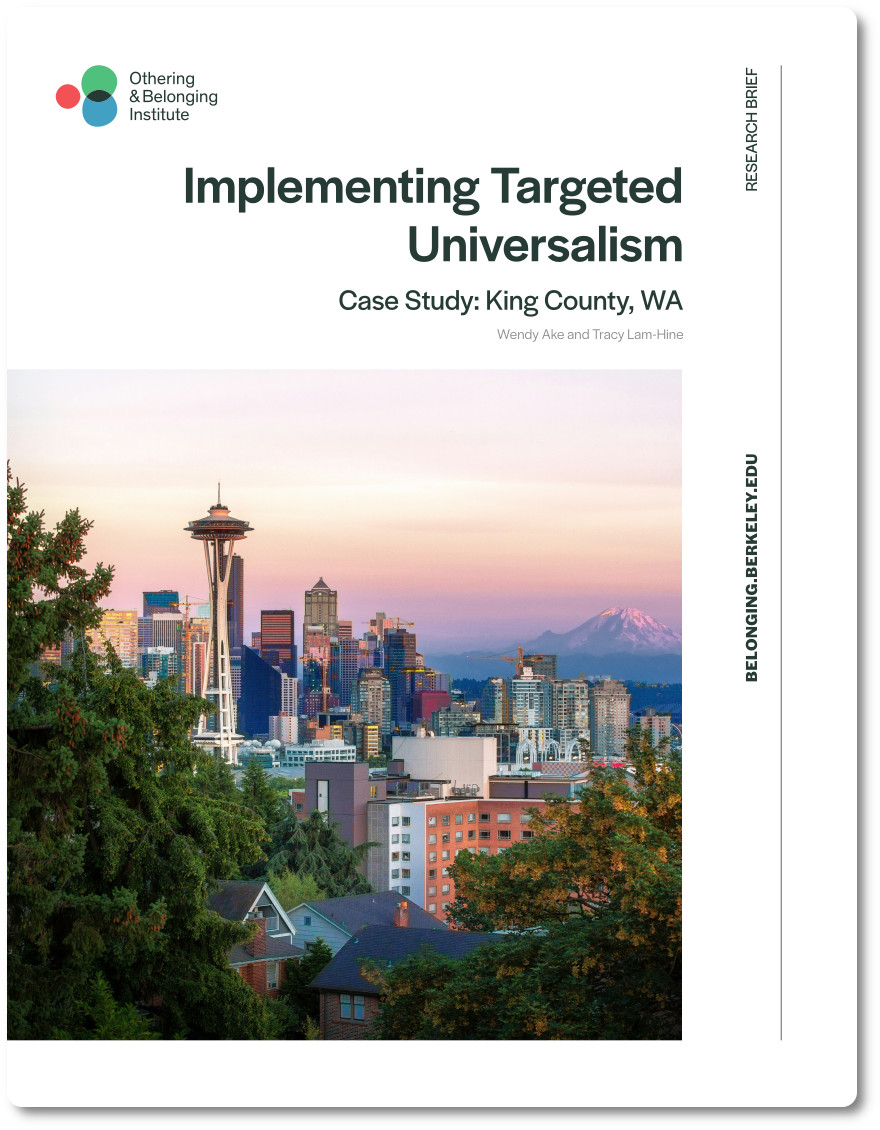This paper is one of several case studies we're producing that demonstrate how the Institute's Targeted Universalism framework is being put into practice by local organizations and governments. This document was produced from in depth conversations with members of King County's government, and is thus informed by many first-hand accounts. Click for more background and resources on Targeted Universalism.
Local and municipal governments anchor the day-to-day lives of US residents. Thousands of city and county governments across the US have an important role to play in building and sustaining equity for their residents. Local governments are a locus of policy making and resource distribution. Thus, they are in a critical position to shaping equity and opportunity through investment and decision-making in transportation, housing, public health, small businesses, and more. Additionally, local governments are uniquely positioned to align or coordinate with — and also be challenged by — advocacy and activist groups in the community.
In 2015, King County, Washington — home to over 2 million people in the Seattle metropolitan area — adopted major updates to its first-ever County Strategic Plan, originally created in 2010. A core goal of the updated Strategic Plan within the theme of Health and Human Potential is to “provide equitable opportunities for all individuals to realize their full potential.” With that goal in mind, in 2016 King County’s newly-created Office of Equity and Social Justice (OESJ) launched a six-year Equity and Social Justice (ESJ) Strategic Plan “centered on promoting equity internally and [in] the community.” The plan involves investing in employees, communities, and upstream interventions such as housing, transportation, health and human services, the justice system, and the environment. Download this report.





